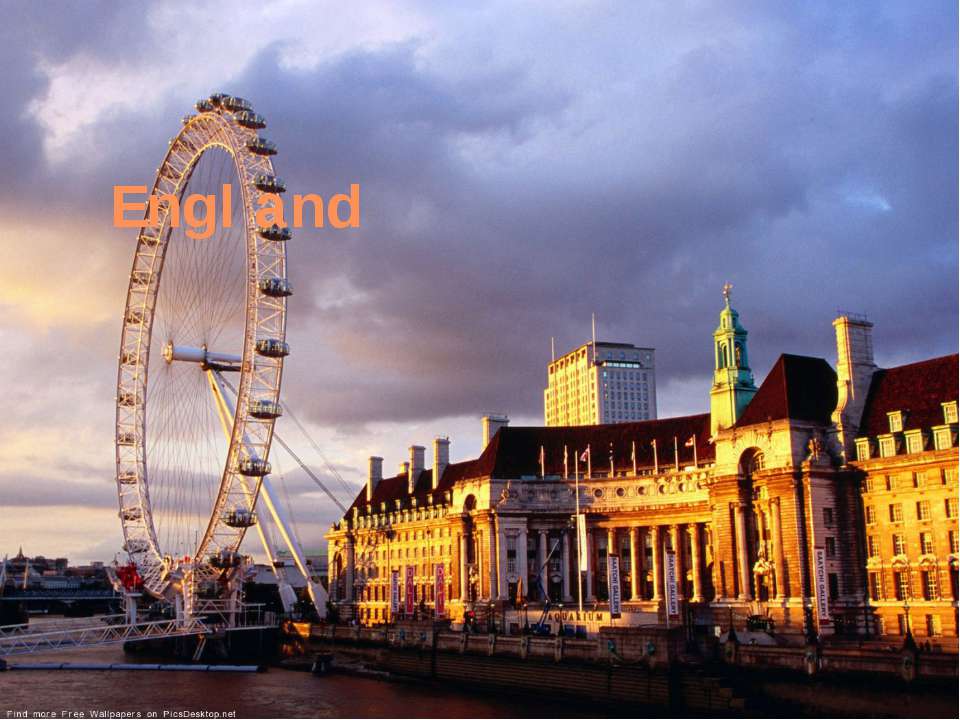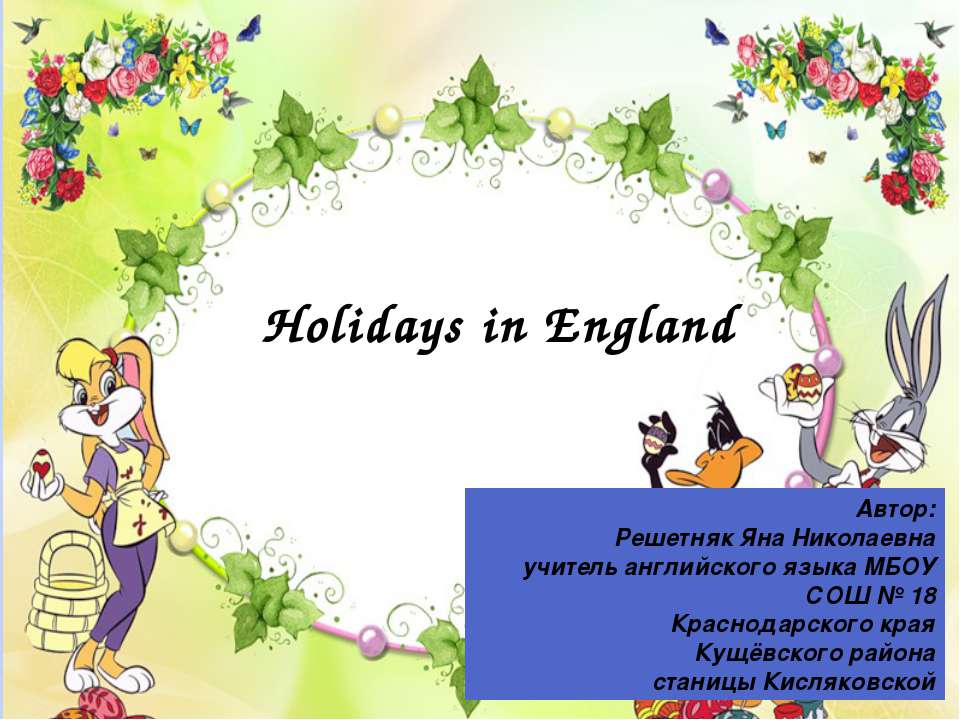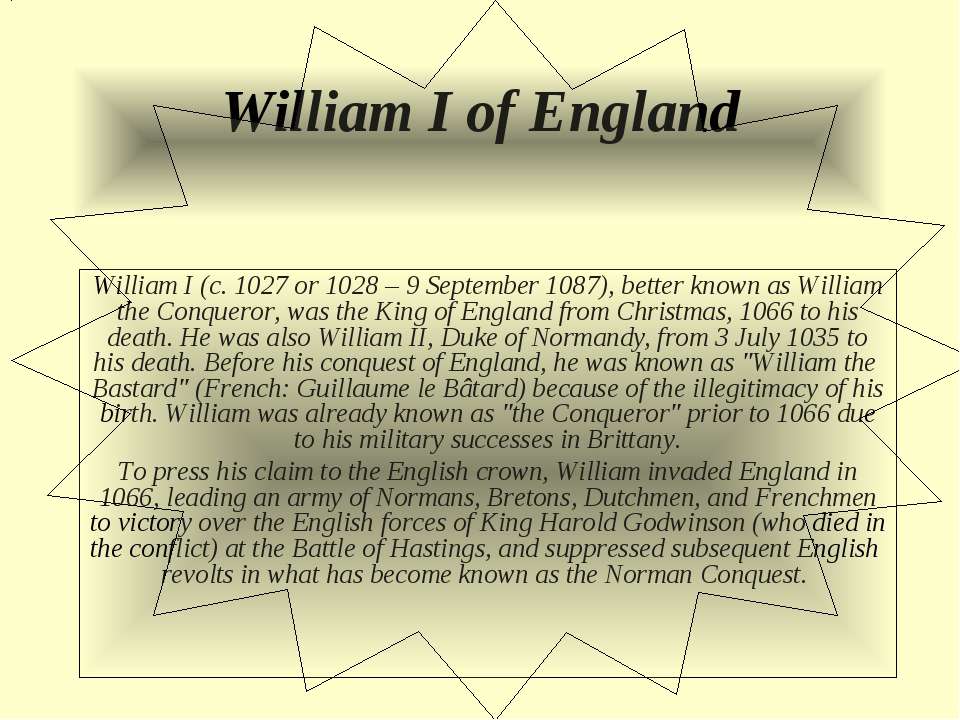The Educational System in England

- Рубрика: Презентации / Презентации по английскому языку
- Просмотров: 143
Презентация для классов "The Educational System in England" онлайн бесплатно на сайте электронных школьных презентаций uchebniki.org.ua
I want to tell you about some of the stages of education in England. The Educational System in England Done by Solovova Nastya.
Children do not have to go to school until they reach the age of five/ but there is some free nursery-school education before that age. Nursery school are staffed with teachers and students in training. There are all kinds of toys to keep the children busy from 9 o clock in the morning till 4 o clock in the afternoon - while their parents are at work. Here the babies play, lunch and sleep. They can run about and play in safety with someone keeping an eye on them. Nursery in England is also called FS1 which is the first year of foundation before they go into primary or infants. Nursery Education(under 5 years)
Primary Education takes place in infant schools(pupils aged from 5 to 7 years) and junior schools (from 8 to 11 years). At infant schools reading, writing and arithmetic are taught for about 20 minutes a day during the first year, gradually increasing to about 2 hours in their last year. Much time is spent in modeling from clay or drawing, reading and signing. By the time children are ready for the junior school they will be able to read and write, do simple addition and straction of numbers. At 8 children go on from the infant school to the junior school. This mark the transition from play to «real work». The children have set periods of arithmetic, reading and composition. History, Geography, Nature Study, Art and Music, Physical Education, Swimming are also on the time-table. Pupils are streamed according to their abilities to learn into A, B, C, and D streams. The least gifted are in the D stream. Primary Education(5 to 11 years)
In Britain children must go to school until the age of 16, and pupils may stay on for one or two years more if they wish. Secondary schools are usually much difficult than primary schools and most children – over 80 per cent – go to a comprehensive school at age of 11. Traditionally the five years of compulsory secondary schooling from ages 11 to 16 were known as "first year" through to "fifth year," (and still are in the private sector) but from September 1990 these years were renumbered Year 7 through to Year 11 (Year 8 to Year 12 in Northern Ireland) with the coming of the National Curriculum. These schools are not selective - you don’t have to pass an exam to go there. Secondary Education(11 to 16/18 years)
Private schools generally prefer to be called independent schools, because of their freedom to operate outside of government and local government control, but are also referred to as public schools. Independent schools do not have to follow the National Curriculum, and their teachers are not required or regulated by law to have official teaching qualifications. Some of the earliest established independent schools are known for historical reasons as "public schools".[4] Education at independent schools is usually chargeable. Such schools, some of which are boarding schools, cover primary and/or secondary education and charge between £2,500 and £30,000 per year.[26] Some schools offer scholarships for those with particular skills or aptitudes, or bursaries to allow students from less financially well-off families to attend. Private Education(5 to 18 years)















